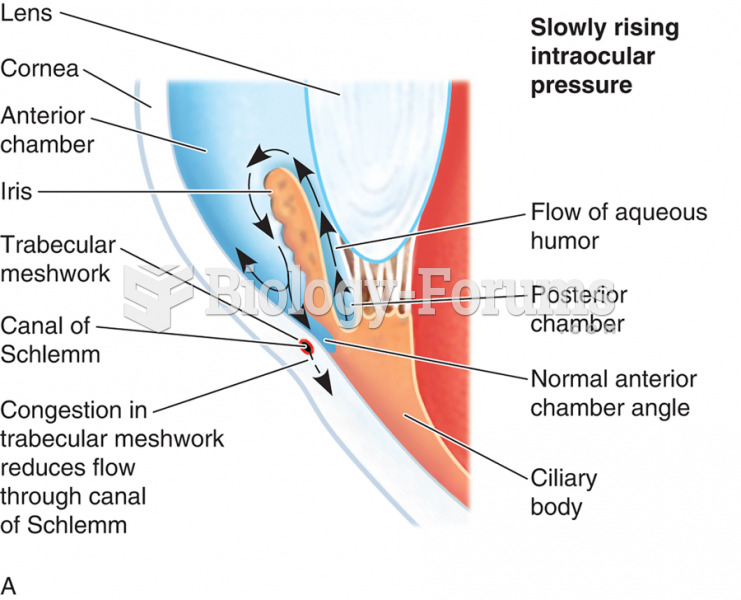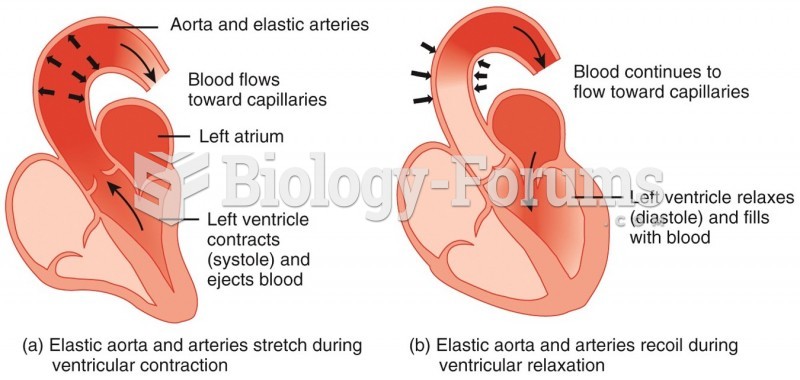|
|
|
If you could remove all of your skin, it would weigh up to 5 pounds.
More than 34,000 trademarked medication names and more than 10,000 generic medication names are in use in the United States.
The average human gut is home to perhaps 500 to 1,000 different species of bacteria.
About 80% of major fungal systemic infections are due to Candida albicans. Another form, Candida peritonitis, occurs most often in postoperative patients. A rare disease, Candida meningitis, may follow leukemia, kidney transplant, other immunosuppressed factors, or when suffering from Candida septicemia.
The eye muscles are the most active muscles in the whole body. The external muscles that move the eyes are the strongest muscles in the human body for the job they have to do. They are 100 times more powerful than they need to be.







